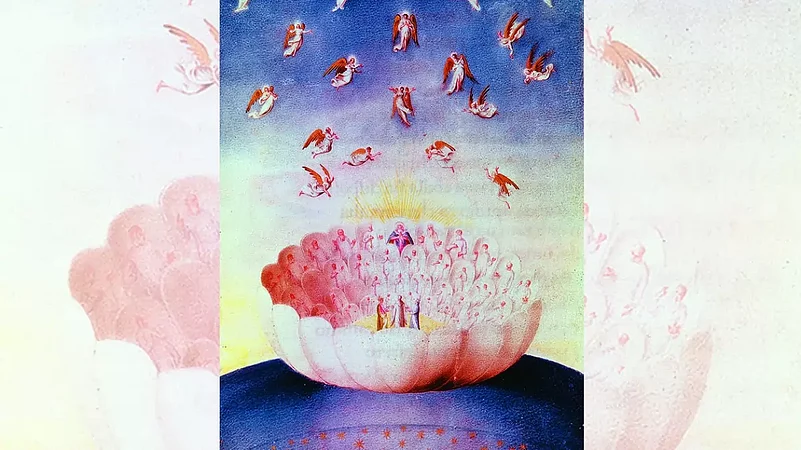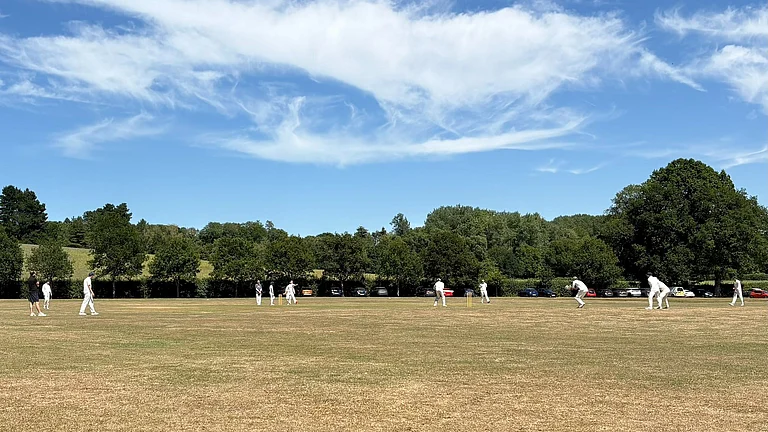Wittingly or unwittingly, we are at a distinctly bleak moment in history, when the politics of emotions, or what literary theorist Sianne Ngai calls Ugly Feelings, has become absurdly popular and degeneratively seductive. Admittedly, we have come to be overwhelmed by the Nietzschean age of ressentiment, a strangely gut-wrenching intimate politics of emotions or feelings without any parallel in our civilisational history.
This has pervaded every nook and corner of our most intimate spaces as well workplaces, fuelling a deep politics of estrangement, isolation and anger, where a small difference in opinion, or a slightly incorrect political view, can lead to mob lynching (real or virtual).
It has become easier to harbour socially regressive emotions like fear, revenge, distrust, when we have Facebook, Twitter, and Instagram to help us harvest them. In this world of virtual emojis, pathologically insecure and clinically challenged, faceless multitudes of ultra-radical rightwingers and leftwingers are struggling with psychic and clinical syndromes of generalised anxiety disorder and possible bipolar disorders.
Like it or not, this has resulted in what psychologists refer to as ‘the dark triad of personality: narcissism, Machiavellianism and psychopathy,’ the root of every evil we encounter in life and love. Are you still surprised when love goes sour, the lover chops you into pieces? In other words, suffering the life-altering paradoxes of ‘abundance’ and the ravages of precarity, both the rich and the poor are doomed to the tyranny of emotions with ‘distorting and destructive effects.’ No wonder, definitionally ethnophobic and ecocidal, this apocalyptic politics of emotions exploits us psychologically and politically, making us vulnerable to manipulation, especially by demagogues. I can now imagine why at Mumbai’s Kala Ghoda Lit Fest, my co-panelist, film director Dibakar Banerjee, startled the audience when he said, ‘The world is now divided between haters and non-haters.’
Thus, we are at the mercy of irrational and mean-spirited emotions affecting our moral, spiritual and political well-being. Powered by post-truth rants, conspiracy theories, memes, and internet trolls, the politics of emotions has also become a super-addictive ‘chills and thrills’ of new age euphoria blurring the distinctions between utopians and dystopians. With disaffection resulting from rising levels of unemployment, divorce, and depression and boredom arising from narcissistic survival cubicles of riches, the politics of emotions has a catastrophic effect on liberal democracies.
If you look over the shoulders of liberal democracies, you will see how they have slowly devoured themselves, creating conditions for authoritarian rule. That’s why fanatics in liberal or illiberal camps resemble each other. All that matters is their shared ‘repugnance for the misfortune of individuals’ who can’t manage hurt or hate. In the words of poet Frank O’ Hara, “Hurt and hate go hand in hand but why be afraid of hate, it is only there.” In this vicious climate, there are no friends, or enemies—only anonymous ‘frenemies’— multicellular life-forms (real or imagined Homo sapiens). Here emotions are not necessarily ‘relational acts between people’ as defined by Dutch social psychologist Batja Mesquita. I know the feeling you are feeling now; ah, how hard a thing it is to say that emotions are not universal. If they are culture-specific, individual-centric and exterior illusions, then why worry about it.
Let’s just junk the idea of living ‘the incomparable risk of shared existence’ as valorised by radical feminist critic Vivian Gornick. In other words, people are no longer linked to each other by sublime primal emotions such as love, sympathy or solidarity. From flight attendants to colleagues in office spaces, all are smiling but behind the smiles lie so much envy, irritation, resentment and hostility. Mocking conventional distinctions between Tocqueville’s ‘habits of hearts’ and Freud’s ‘simulated fears’, all of us are complicit in this paranormal game of virtue-signalling of fake happiness with facial prosthetics. And the facemasks are not innocent—they can be protective as well dangerous and self-alienating.
In this new age of anxiety or what cultural theorist Lauren Berlant called Cruel Optimism, everyone seems to be perpetually struggling to manage a wide range of socially scripted combinations of primary emotions such as love, enjoyment, anger, fear, shame, disgust. The result of this affective turn in contemporary casino capitalism has led to the rise of a new set of cool, cynical hybrid mutants—the so-called ‘political depressives’ who have literally captured the theatre of repressive politics of emotions.
You may find it morally and philosophically embarrassing, but I am not surprised when Arlie Russell Hochschild, widely hailed sociologist of emotion, wryly argues that if “the poor salesclerk working in an elite clothing boutique manages envy, the Wall Street stock-trader manages panic.” Thus don’t be surprised about the extreme savagery with which the politics of hostility, outrage and envy have not only contaminated our existential body politic but also infected our dreams and fantasies in ways that corrode social life, diminish privacy, and weaken civic cohesion. Believe it or not, it also affects our instincts and sentiments to evoke and emote life—nurturing emotions like selfless love (agape) or friendship (kalyāna mitta) in personal and social contexts.
Amidst the rising dividends of the politics of ‘fantastic extremes’, this scandalous and ethically spurious age of ressentiment or disaffection has also altered our identities (real or fictional) and moral paradigms in our tyrannical quest to be superior to others. This has forced us to ask what sacred games we have to invent to survive the new geographies of hate and hostility.
In fact, we have indeed invented seductive forms of relishing deep psychological horrors and disturbances. Consider the alluringly ultra-violent Korean show Squid Game which has become a global phenomenon. It is a dark, social satire on the chillingly fascinating politics of emotions in which 456 desperately impoverished and hopelessly disillusioned people are enticed to compete in classic children’s games with deadly stakes for the chance to win a life-changing, winner-take-all cash prize.
In this macabre parade of human suffering, emotional stakes are high, with the rising body count. What separates Squid Game from Hunger Games or similar shows is that the players in Squid Game have a fake sense of agency and false emotional fulfilment. That’s why the mastermind reveals in the end of the show that he is extremely rich and he is at the terminal point in his life where he finds himself in a psychic limbo of boredom, or what Tolstoy calls ‘a desire for desires’, or in the words of psychoanalyst Adam Phillips, “the state of suspended animation in which things are started and nothing begins”. Having everything he wanted didn’t make him happy enough in this state of idyllic restlessness, so he plans a sadistic, zero sum game to have some ‘fun’ at the cost of others. Thus, he creates deadly games for emotional and cognitive pleasures of ‘amusement and entertainment’ to fill his life with joys of traditional children games.
In other words, Squid Game celebrates the politics of despair and envy with such clinical execution of violent emotional flair that cruelty becomes an entertainingly sadistic way to ‘permanent purgatory’. Amid the rising furies of fears, resentments, and competitive hostilities pervasive in all societies, “public emotions rooted in love—in intense attachments to things outside our control—can foster commitment to shared goals and keep at bay the forces of disgust and envy,” in the words of philosopher Martha Nussbaum.
As the sage Atri in the Rig Veda exhorts, we need love (erotic and spiritual) because without it the world lacks gloss—emotional and physical. And love is what gives humanity its authenticity and allows us to reap the bounties of paradise—the eternal reign of luminescent truth and tolerance. And it’s not impossible. Refashioning the categories of home and world, private and public, Gandhi and Tagore refashioned the register of emotions as a universal humanist allegory of love for community and individual. Might a politics of love and care save us?
(This appeared in the print edition as "Purgatory or Paradise?")
(Views expressed are personal)
Ashwani Kumar is a Poet and professor at TISS, Mumbai

























